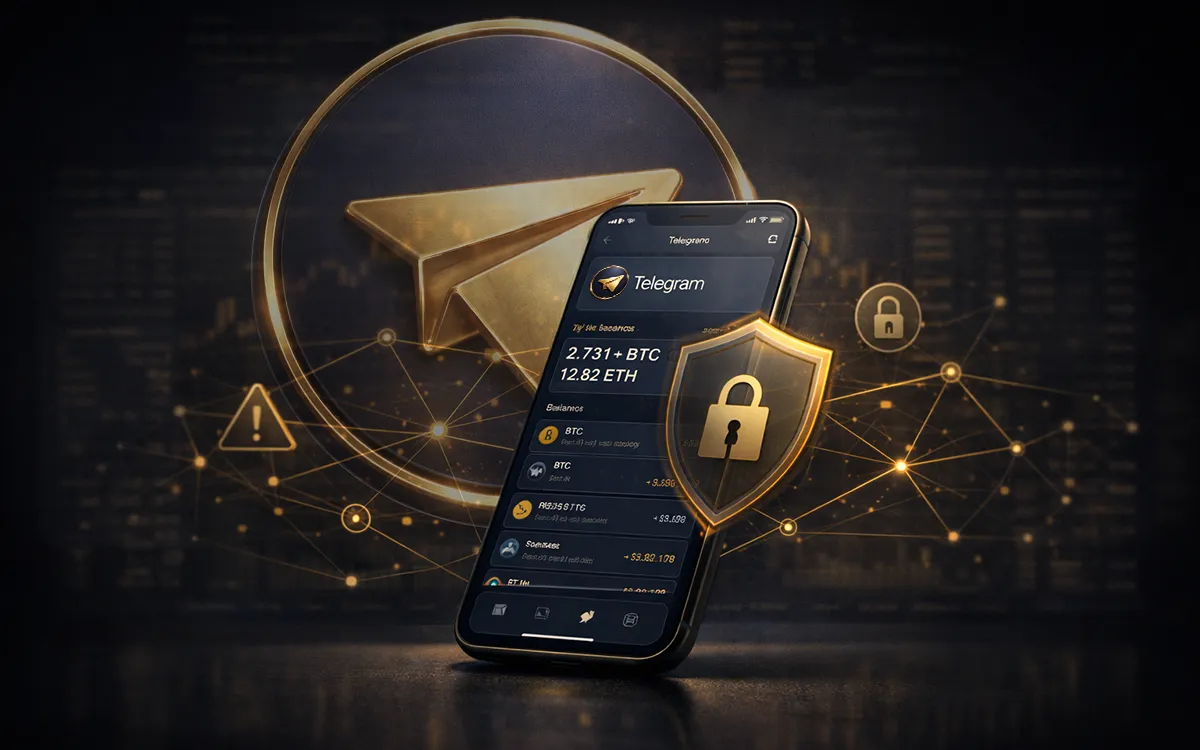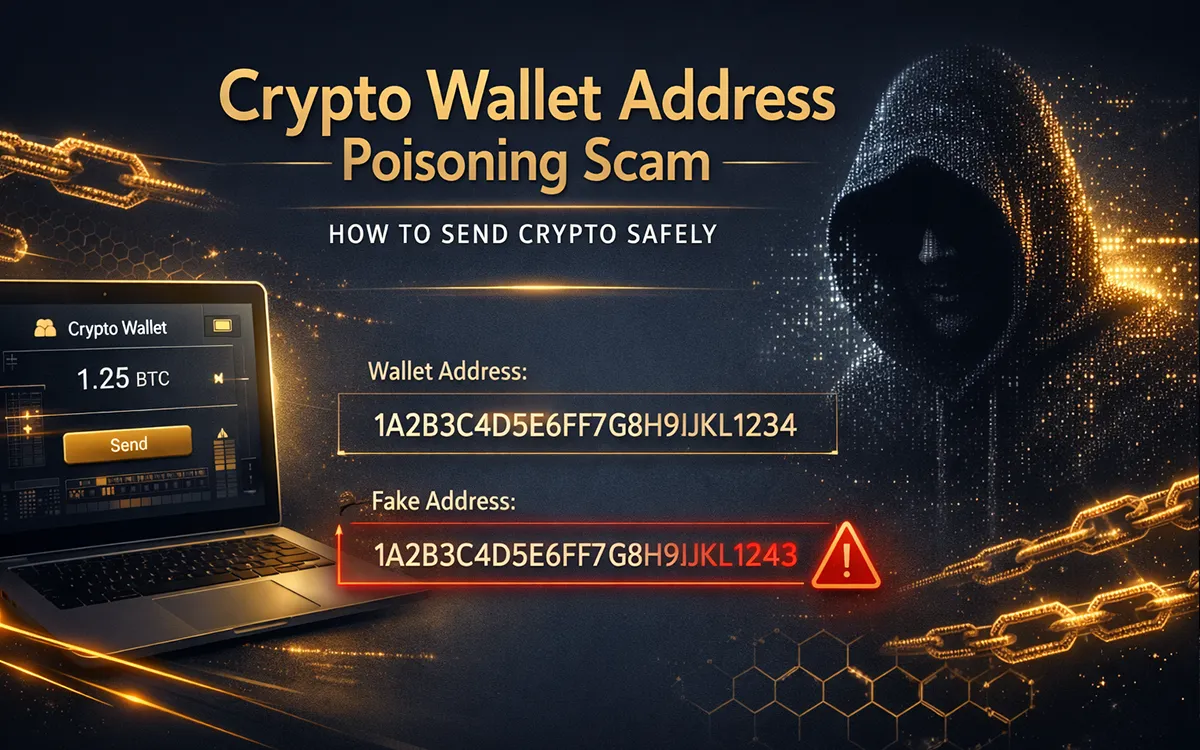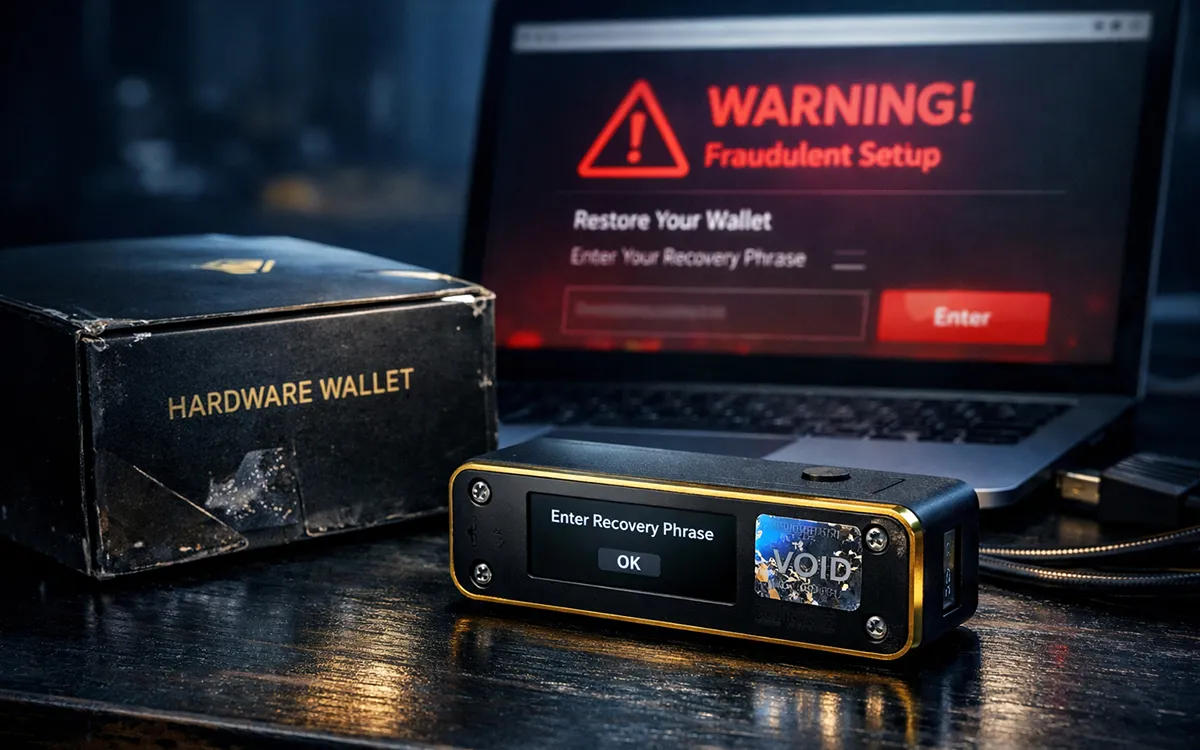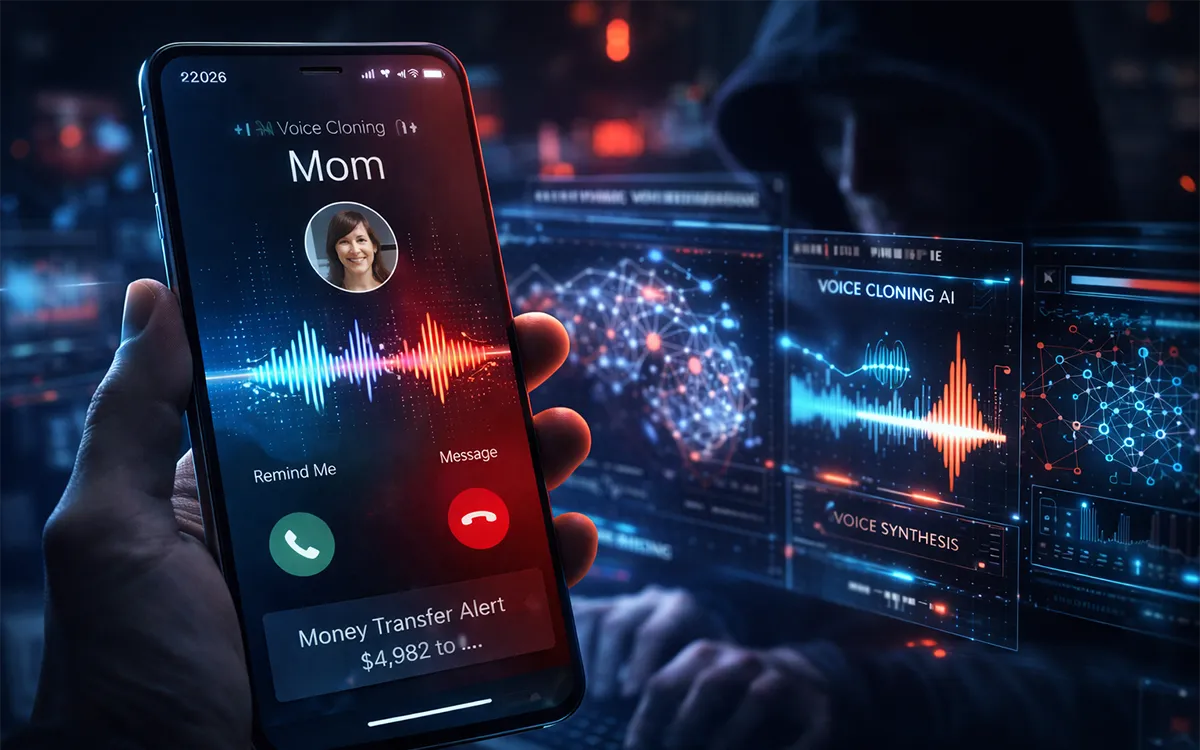
- Cryptocurrency
- July 10, 2025
Table of Contents
“It started as a game… and ended in a total loss.”
That’s the harsh reality for thousands of people who get pulled into crypto gaming scams. These games promise fun, rewards, and fast profits through Play-to-Earn (P2E) models, but many are actually fake and made to trick people.
From flashy NFT projects to viral tokens tied to metaverse-style games, scammers are exploiting the excitement around Web3 and online gaming.
It’s not just seasoned investors getting burned; gamers, students, and first-time crypto users are among the top victims. The Bitcoin games often look legit, with sleek designs and trending token launches. But behind the scenes, many are just pump-and-dump schemes, rug pulls, or wallet drainers in disguise.
In this blog, we’ll break down what crypto gaming scams are, how these fake games operate, red flags to watch for, their types, and what to do if you’ve already lost money.
If you've ever clicked on a “play and earn” ad or minted an in-game NFT, this is the blog you need to read before it costs you.
What are Crypto Gaming Scams?
Crypto gaming scams are scams disguised as blockchain games, promising financial benefits. Such scams usually deal with Play-to-Earn (P2E) systems or NFT-based games by promising users to invest in such digital tokens or in-game assets to generate profits. As a matter of fact, the games are designed to misrepresent the consumers and defraud them of money or cryptocurrency.
These scams take several forms, including
- Fake play-to-earn games
- NFT collectible or trading card games
- Metaverse-style game platforms
- Web3 game tokens and initial coin offerings (ICOs)
In the beginning, these games do not seem fake. They even have high-quality websites, nice marketing videos, social media promotion, and even celebrity backing. Nonetheless, the main aim of these scammy projects is to deceive users into investing in them and to vanish with the money later, which is often called a rug pull.
Victims are often persuaded to:
- Buy in-game tokens that have no real value
- Purchase NFTs that cannot be resold
- Click on wallet links that compromise their funds
- Join “early access” or “beta” programs that never launch
In many cases, the games are never fully developed, and once users have invested enough money, the scammers vanish, leaving behind a non-functioning website, broken promises, and empty wallets.
How Play-to-Earn and NFT Game Scams Work?
Initially, Play-to-Earn (P2E) games and NFT-based blockchain games will seem new and exciting. They tend to market themselves as revolutionary platforms where users can make actual income by merely playing a game.
However, hidden from the token launches are many of these projects, as they are well-planned scams aimed at taking advantage of trust, generating hype, and stealing money.
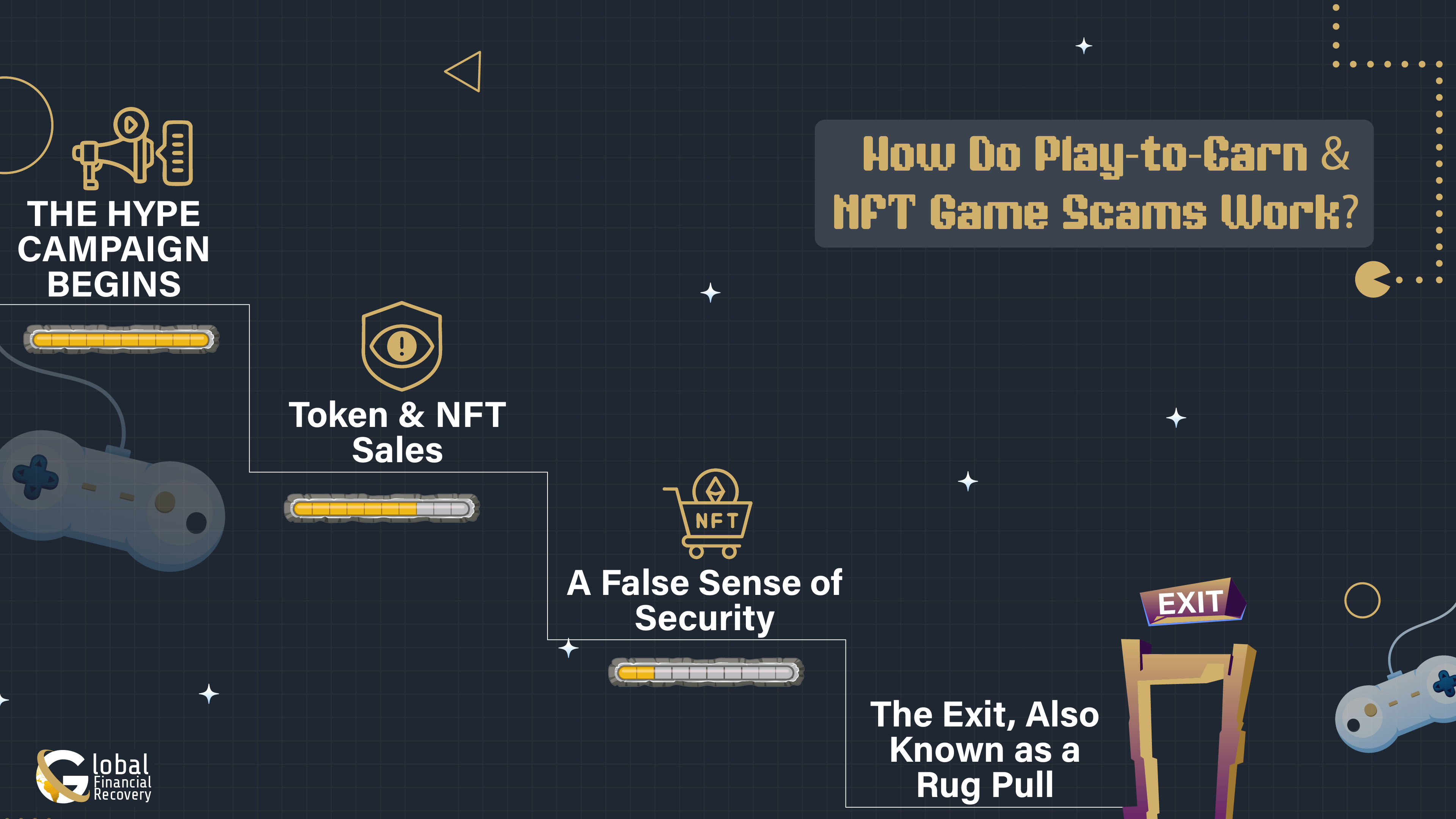
Let’s break down how these scams typically operate, step by step.
Step 1: The Hype Campaign Begins
The scam often starts with aggressive marketing across social media platforms like Twitter (X), Discord, Telegram, and YouTube. Scammers may:
- Pay influencers to promote the project
- Share flashy trailers and fake gameplay demos
- Promise exclusive early access or high returns for early investors
They often use buzzwords like “metaverse,” “DeFi gaming,” or “next-gen NFT economy,” “earn crypto playing games” to sound innovative and attract attention.
Example:
In 2021, the Squid Game Token, a token marketed as a P2E game based on the Netflix show of the same name, saw the token launch to remarkable success. It was an almost overnight rise of value, only to crash within days when the developers yanked the rug out from under the investors and disappeared with more than 3.3 million in their wallets.
Step 2: Token and NFT Sales
Next, users are encouraged to:
- Buy native tokens (usually required to play or level up)
- Purchase NFTs (such as game characters, weapons, or lands)
- Stake tokens for high APY returns or “passive income.”
In many cases, these assets are non-functional, have no utility, or are impossible to trade on reputable platforms.
Step 3: A False Sense of Security
To appear legitimate, the scammers may:
- Publish a fake whitepaper or roadmap
- List the token on obscure exchanges
- Claim their project is audited or “partnered” with major platforms
- Use bot-generated activity to make the community appear active
Everything is carefully crafted to give users the illusion that the project is real and growing.
Step 4: The Exit, Also Known as a Rug Pull
Once a significant amount of money has been collected through token or NFT sales, the scammers execute their exit strategy:
- They disable the website or servers
- Block users on social platforms
- Withdraw all funds from the liquidity pool
Victims are left with unusable tokens, frozen game assets, and no way to recover their money.
Example:
The NFT-based game "Evolved Apes" raised over $2.7 million, promising a fighting game with NFT characters. Just weeks later, the anonymous developer disappeared with the funds, delivering no game and no roadmap progress.
5 Warning Signs To Identify Crypto Game Scams
Play-to-earn crypto games are getting more popular. But with this growth comes more scams. You need to know the warning signs to keep your money safe.
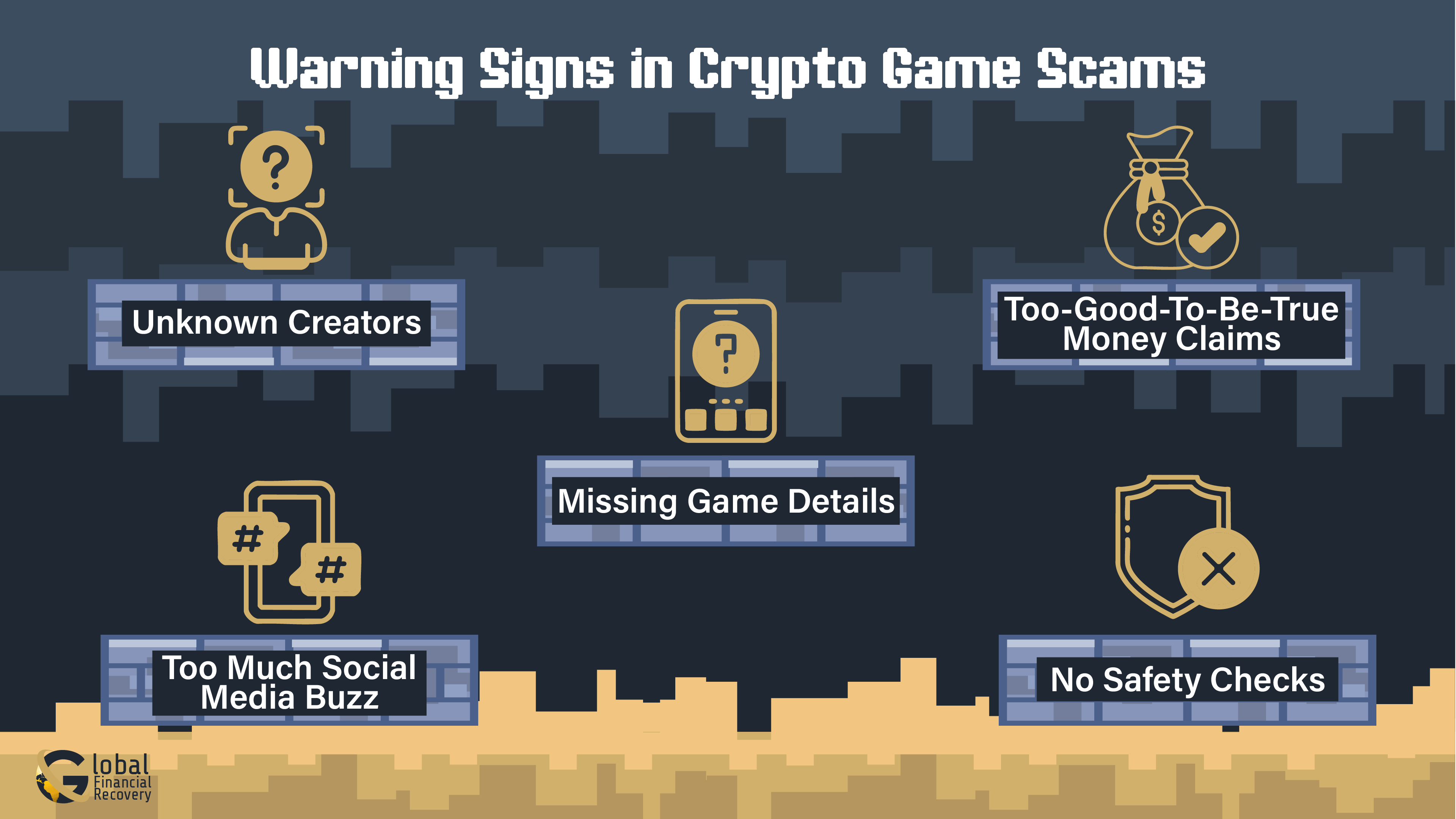
Here are the main red flags to watch out for:
1. Unknown Creators
Some crypto games are made by people who hide their names. They don't tell you who they are or what they've done before. This is bad because if something goes wrong, you can't find them. They might just disappear with your money one day.
2. Too-Good-To-Be-True Money Claims
Be careful if a game promises you'll make lots of money fast. They might say you'll earn money from cryptocurrency without doing much work. This is usually not true. Many people lose their savings believing these false promises.
3. Missing Game Details
Good crypto games explain how their tokens work. They have papers that tell you about the game's money system. If a game doesn't share this info, something might be wrong. They could be hiding bad things from you.
4. Too Much Social Media Buzz
Some Bitcoin games pay famous people online to talk about them. But these people might not know much about crypto or games. If you see too much hype on social media, be careful. The game might not be as good as they claim.
5. No Safety Checks
Real crypto games get their code checked by experts. They also follow money rules and laws. If a game skips these safety steps, your money could be in danger. Hackers might steal from games that aren't properly checked.
Staying Safe
Remember these simple tips:
- Research before you invest
- Don't trust get-rich-quick promises
- Look for clear information about the game
- Check if experts have reviewed the game
- Only invest money you can afford to lose
Trust your gut. If something feels wrong, it probably is.
Most Common Crypto Gaming Scam Tactics
Understanding the common strategies and the typical claims scammers use can help you identify potential fraud before it’s too late.
|
Scam Tactic |
What They Say |
Description & How It Affects Users |
|
Rug Pulls Disguised as Game Launches |
“This is a revolutionary game, get in early!” |
Developers withdraw all liquidity or funds after initial hype fades, causing the platform to vanish overnight. Users lose all invested capital with no way to recover it. |
|
Pump-and-Dump Token Schemes |
“Our token is skyrocketing, don’t miss out!” |
Tokens are artificially inflated through fake volume and promotions. Insiders sell off holdings at a high price, causing the token value to collapse, leaving investors with worthless gaming crypto coins. |
|
Fake NFT Assets With No Real Utility |
“Own rare, exclusive NFTs with huge future value!” |
NFTs sold as rare or valuable game assets often lack any actual use or resale market. When the project fails, these NFTs become worthless digital collectibles. |
|
Play-to-Earn Models Requiring Continuous Spending |
“Keep upgrading to maximize your earnings!” |
Games pull players with initial rewards but require ongoing purchases of NFTs or tokens to keep earning. The economy collapses when spending stops, causing financial losses. |
|
Phishing via Fake Game Platforms |
“Connect your wallet to claim rewards!” |
Scammers create fake websites or apps to trick users into connecting wallets, then steal funds. These attacks cause immediate and often irreversible asset loss. |
|
Overly Generous Referral Programs |
“Earn huge commissions by inviting friends!” |
Referral schemes promise high commissions to recruit new users but operate like Ponzi schemes. When growth slows, rewards stop, and developers disappear, causing investor losses. |
|
Airdrop Bait and Mystery Boxes |
“Claim your free NFT or token now!” |
Free giveaways attract users to interact with scams, often leading to wallet permission requests, malware installation, or fake deposit demands, resulting in loss or theft of assets. |
|
Disabling Withdrawals Without Warning |
“Withdrawals temporarily paused for system upgrades.” |
Platforms block withdrawals under false pretenses (e.g., technical issues) to buy time while developers exit, trapping users’ funds indefinitely. |
Being familiar with these common tactics and the typical phrases used by scammers can empower you to make informed decisions and avoid costly mistakes in the crypto gaming space.
How to Avoid Crypto Gaming Scams?
Crypto gaming scams are everywhere. But you can protect yourself. Here's how to stay safe and keep your money secure.
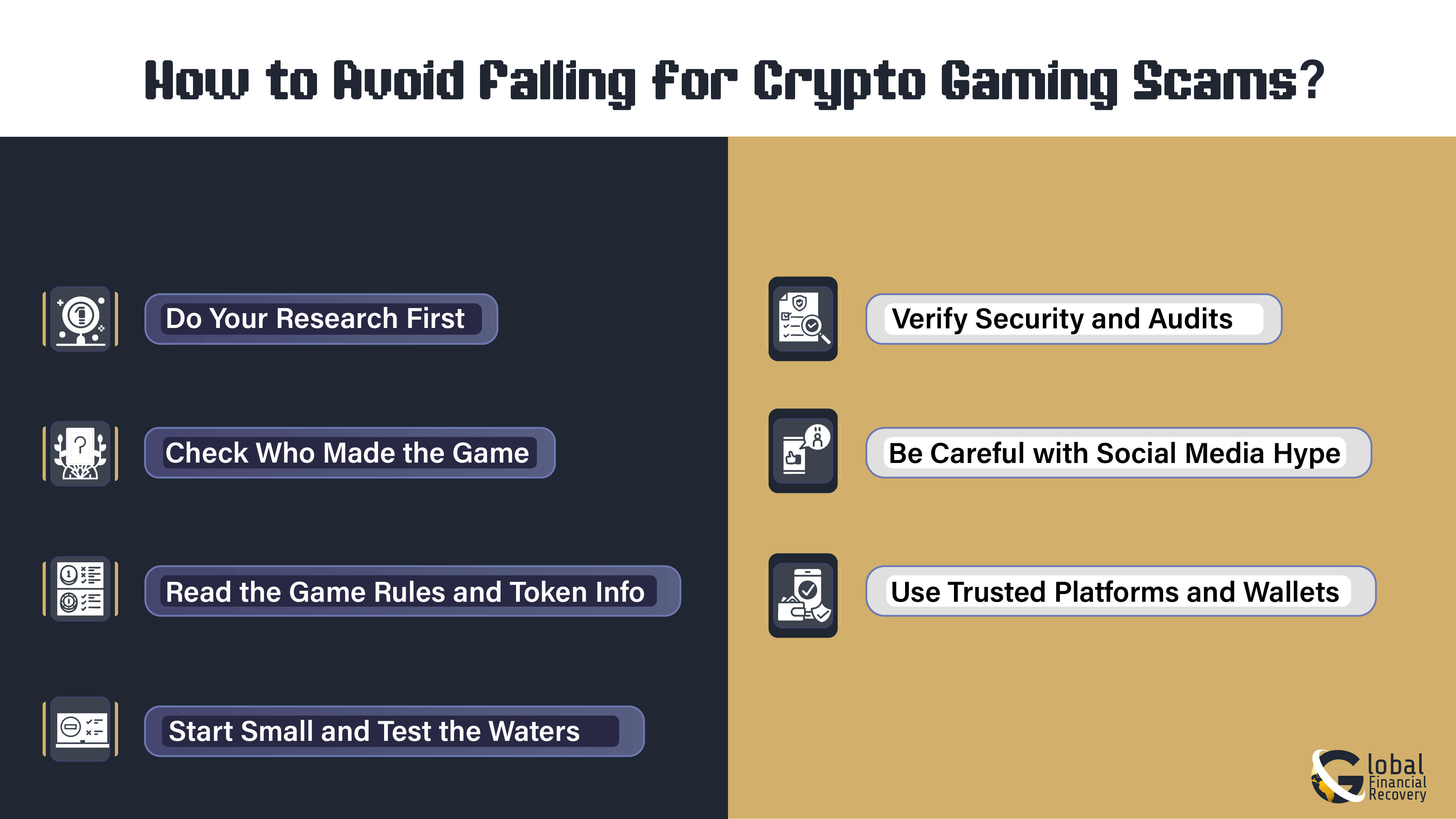
-
Do Your Research First
Never jump into a crypto game without checking it out first. Look up the game online. Read what other players say about it. Check if the game has been around for a while. New games can be risky.
What to look for:
- Real user reviews (not fake ones)
- How long has the game existed
- News articles about the game
- Community discussions on forums
-
Check Who Made the Game
Real people make good crypto-earning games with real names. The creators should tell you who they are. They should have experience making Bitcoin games or working with crypto.
Red flags:
- No names or photos of creators
- Fake social media profiles
- No work history shown
- Team members you can't find online
-
Read the Game Rules and Token Info
Every good crypto game explains how it works. They should have clear documents about their tokens. This includes how many tokens exist and how you can use them.
Look for:
- Detailed game rules
- Token information (tokenomics)
- Clear roadmap for the future
- Easy-to-understand terms
-
Start Small and Test the Waters
Don't put all your money into one crypto game. Start with a small amount you can afford to lose. Play the game first. See if it actually works. Check if you can withdraw your money easily.
Smart approach:
- Invest only what you can lose
- Test withdrawals with small amounts
- Play for a few weeks before investing more
- Don't borrow money to invest
-
Verify Security and Audits
Safe crypto games get their code checked by security experts. These are called audits. Look for games that have been audited by known companies.
Security checklist:
- Smart contract audits by reputable firms
- Security certificates
- Bug bounty programs
- Regular security updates
-
Be Careful with Social Media Hype
Don't trust everything you see on social media about crypto games. Some influencers get paid to promote scam games. Do your own research instead of following the crowd.
Social media warnings:
- Too much hype and excitement
- Influencers with no crypto experience
- Pressure to invest quickly
- "Limited time" offers
-
Use Trusted Platforms and Wallets
Stick to well-known crypto exchanges and wallet apps. Don't download games from unknown websites. Use official app stores when possible.
Safe practices:
- Use hardware wallets for large amounts
- Download games from official sources
- Keep your private keys secret
- Use strong passwords
What to Do If You’ve Been Scammed in Crypto Gaming Scams?
If you’ve been scammed by a crypto game, acting quickly can help protect your remaining assets and prevent further harm.
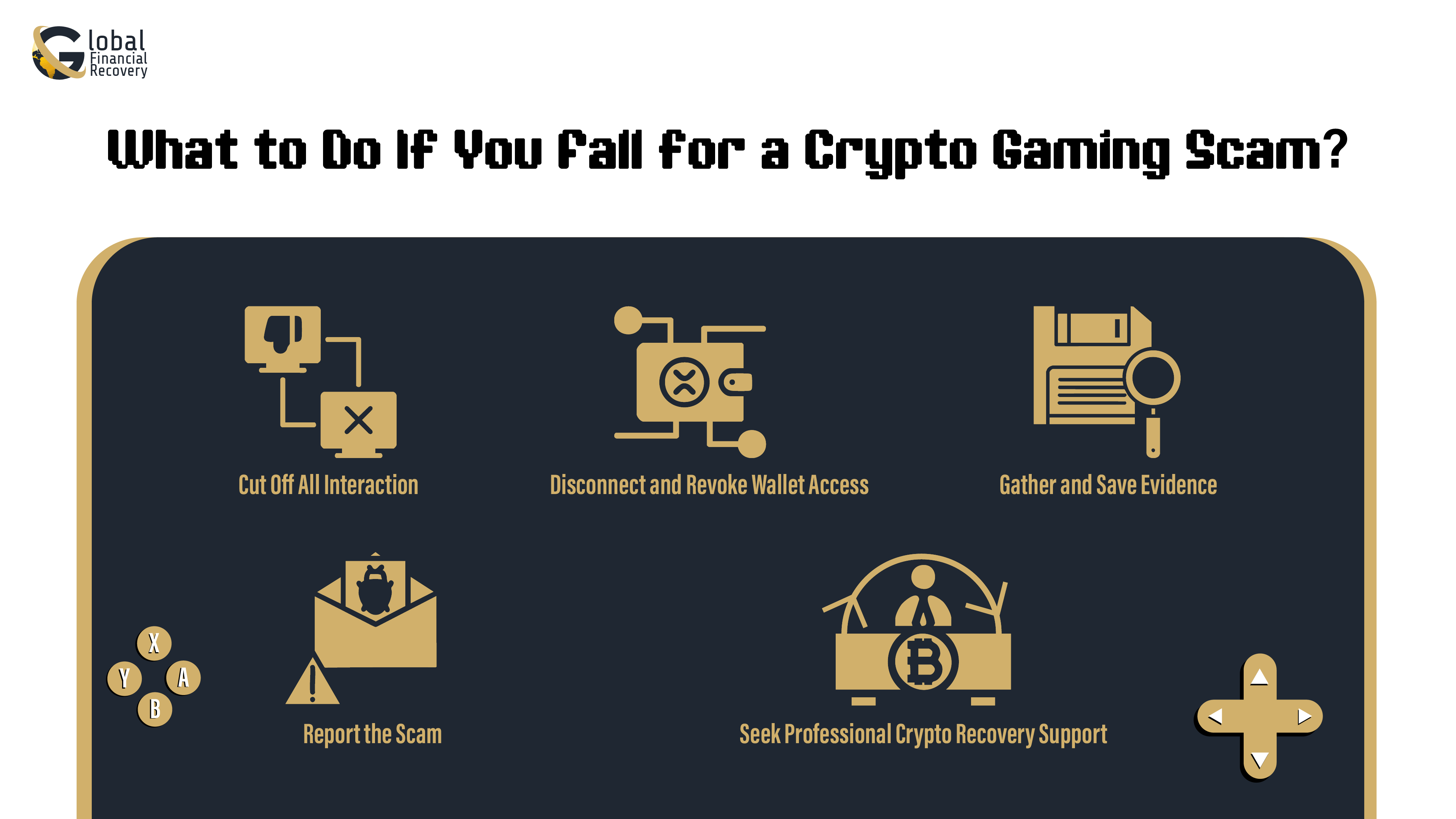
Here’s what you should do:
1. Cut Off All Interaction
Stop using the platform immediately. Don’t respond to messages or offers promising refunds or “unlocking” your funds; these are often follow-up scams.
2. Disconnect and Revoke Wallet Access
Use a trusted tool like Revoke.cash to disconnect your wallet and revoke any permissions you granted to the scam site. This prevents further unauthorized access.
3. Gather and Save Evidence
Take screenshots of the website, transactions, wallet addresses, emails, and any communication. These records are important for reporting and potential investigation.
4. Report the Scam
Report the incident to the relevant platforms and authorities.
- FTC Report Fraud
- Local consumer protection or cybercrime agencies
5. Seek Professional Crypto Recovery Support
Recovering crypto from a scam isn’t always possible, but in some cases, funds can be traced and recovered, especially if the scammer used a centralized exchange or KYC-verified wallet or was part of a known scam ring. You can consult a crypto recovery specialist for fund recovery. We offer personalized support and updates throughout your case.
Know the Game Before You Play (or Pay)
If you’ve made it this far, you’re already ahead of the curve. Most people dive into crypto games chasing hype or fast profits, few take the time to understand the risks until it’s too late. But by learning how crypto gaming scams really work, you’re giving yourself the best chance to avoid painful losses.
Scam games today look more polished than ever, backed by influencer shoutouts, fake NFT assets, and “too good to miss” token drops. Whether it's a flashy new play-to-earn project or a mystery box with big promises, the tactics are designed to pressure you into acting fast and asking questions later.
But now you know better. By identifying the red flags of anonymous teams, lack of tokenomics, guaranteed income, and wallet-draining permissions, you can save not only your crypto but also your mind. A new threat is enough to lose everything, though several clever moves are enough to remain safe.
And if you’ve already been scammed? You’re not alone, and it’s not the end of the road. What matters now is how you respond: secure your accounts, report the scam, and get help if you need it.
Crypto gaming isn’t going anywhere. Neither are the scammers. But with awareness, caution, and community, you can enjoy the real opportunities without falling for the traps.
Think you’ve been scammed in a crypto game?
Get expert help and explore your recovery options with Global Financial Recovery.
FAQs (Frequently Asked Questions)
Initiate by relying on your instincts—when something seems wrong, it usually stands as such. Observe indicators such as unidentified creators combined with absent gameplay footage, alongside extravagant quick money promises while experiencing pressure to purchase tokens and NFTs initially. Scammers depend on manufactured excitement and time pressure to ensnare individuals before they comprehend the true situation.
First, don’t panic. Quickly disconnect your wallet and use a tool like Revoke.cash to remove any permissions the site may have. Then take screenshots of your transactions and activity. Report what happened to platforms like the FTC or IC3. If you lost a significant amount, you might consider contacting a crypto recovery expert—but be cautious, as some “recovery services” are scams too.
Ah, not all NFT games are scams; some actually operate well. But the field is still in its infancy and largely unregulated, so be wary. Investigate who stands behind the project, if there is any genuine whitepaper, how the token operates, and whether the game has undergone any auditing for security before investing.
Yes, indeed. Most crypto-gaming scams constitute serious crimes such as fraud, identity fraud, or wire fraud. You might want to report a scam to the Federal Trade Commission (FTC), the Internet Crime Complaint Center (IC3), or the cybercrime division of your locality. It is of great importance to report these cases for awareness to be generated or actions to be taken on their investigation.
NFTs and loot boxes play on the excitement and fear of missing out. Scammers use these tools to get players to act fast, spending money on “limited” characters, items, or mystery rewards that often turn out to be useless. It’s all about creating hype while hiding the fact that the game has no real value or future.

